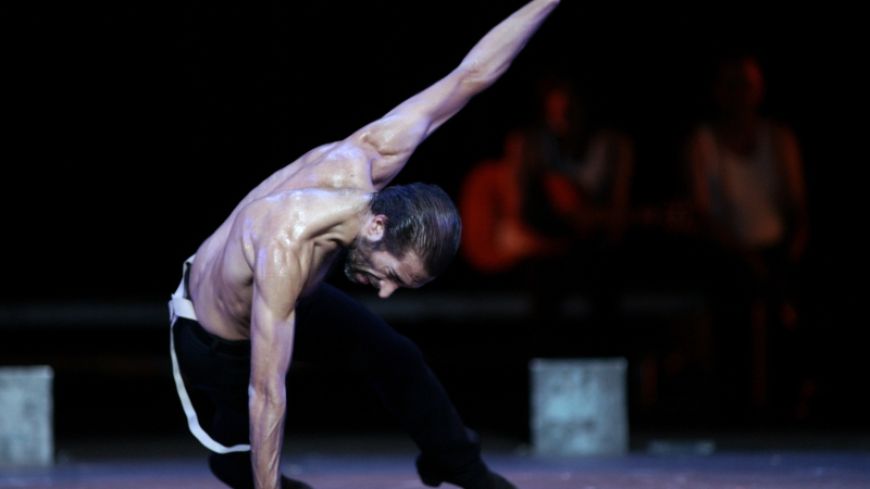
Lo Real is an intense and uncomfortable theatrical experience that apparently does not appeal to everyone.
It is a little-known fact that during the Second World War nearly half a million gypsies were murdered after finding themselves on Hitler’s hit-list. For flamenco dancer Israel Galván, whose mother is a gypsy, the impact of this was felt very close to home. Lo Real is his tribute to the Sinti and Roma people who died in the Holocaust and to those European gypsies who continue to live with stigma and condemnation.
With a bare stage that allowed glimpses of the dancers warming up where the ‘wings’ usually hang, Galván’s motley crew of singers and musicians ambled into view. But there was nothing casual about this performance. As Galván began to dance, a unique style that is flamenco at heart but with eclectic and eccentric overtones, his body by turns projected both rage and love with compelling intensity.
Shot-through with symbolism in favour of a storyline or plot, yet following a common format of beginning, middle and end, this piece had a strangely sinister ‘intermission’. Evoking the Nazi’s disturbing fascination with flamenco, the intermission depicted German dancer Leni Riefenstahl from the film Tiefland, gypsified and dancing flamenco in a way that was both comic and disquieting. It is another little known fact that the gypsy extras that were used in Riefenstahl’s films were taken away and either shot or sent to concentration camps once filming ended.
Belén Maya and Isabel Bayón, two female dancers who share Galván’s ability to project emotion and character without words, both gave very different but equally captivating performances. The singers and musicians lent a powerful atmosphere, and not just in the background but entering into the drama for particular moments, demonstrating the collaborative effort and ethos that drives Galván’s vision for this piece.
This performance was full of necessary and deliberate contradictions in which brutality segued into humour and the grotesque mingled with the familiar. The music too stretched from harmony into discord, the latter accentuated by the calculated, almost at times unbearable, scraping and grinding of metal against the floor.
For a performance dealing in opposites, it is perhaps not surprising that it should have also divided the audience:. The sounds of audience members noisily leaving the theatre was a continual distraction, but those of our number who left were equally matched by those on their feet cheering, clapping and whooping at the end. It’s fair to say that this will probably not appeal to those wishing to see some lovely Spanish dancing, but those who are not disconcerted by gritty passion, and like their warmth and humour with a bite, may just love it.
runs until 21st August

